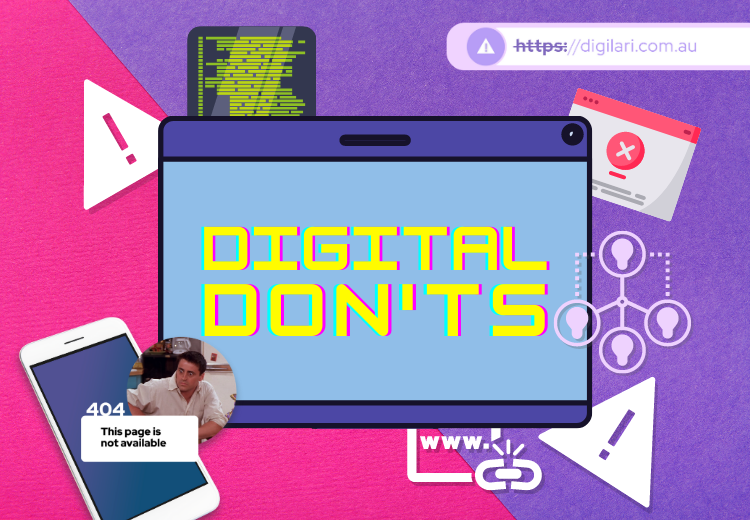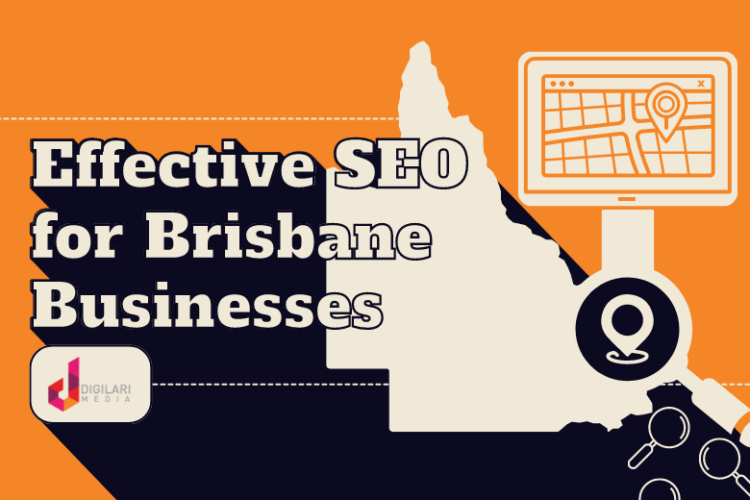
As a business owner, you probably have put so much effort into your website to make it outstanding in the organic search result. You no doubt have good working knowledge about all the key happenings in your business, but it would be fair to say that you probably don’t have deep knowledge of all the specific things that go into making a successful business tick.
This is especially the case when it comes to digital marketing, right?
Digital marketing is the one area in constant flux where even the most hardened, highly technical digital practitioners struggle to keep up with the changes.
The Google algorithm becomes stronger every time someone searches on the platform and right now that is at a rate of over 3.5 billion searches per day. No wonder things are moving at light speed.
So picture this, your website has been performing well with traffic and conversions moving along nicely. You are generating a good level of enquiries and whilst you don’t win all of them, you are converting the lion share of these enquiries into actual sales. Life is good and the business is growing.
But then something starts to happen, the leads start slowing down, fewer quotes are being sent and the phone falls quiet.
Everyone knows that new leads coming into the business are the life-blood of the business and when they start drying up, this can be hugely detrimental to a businesses cash flow and future growth.
Your website was performing well, but now, not so well. So what the heck happened?
Obviously, there are factors out of your control, i.e. a pandemic, a macroeconomic downfall and the like. The only consolation on these types of events dramatically slowing your leads’ flow is that it is simultaneously happening to your competitors as well.
Now, if when taking away the events you have no control over, your leads are still drying up, well that’s a micro-problem. It’s your problem and it’s yours to fix.
At Digilari we constantly work on websites, it’s the foundation on which our marketing services are predominantly built on, so we have seen some digital marketing practices that are hindering business.
Here’s a small list of often not talked about ‘Digital Don’ts’, in both tech speak and topline speak, that might just be the reason your website has started to head in the wrong direction and is impacting badly the level of enquiries coming through.
1. Delete Irrelevant Website Pages Incorrectly:
Someone thought it was a good idea to delete pages that are not relevant anymore without assigning a 301 redirect to a relevant page to ensure you maintain both the authority and visits that page was getting.
A 301 redirect is the way of telling the search engines that you have permanently moved this page to another destination on your site.
When you just delete the page, you cut off any link equity (ranking power) for that page and take the risk of sending visitors to a 404 page (page not found). Sure, the page might not be relevant to your website any longer, but the historical value of the page should not be lost forever.
By deleting the page you have run the risk of losing rankings, a loss in rankings could result in a loss of organic search visibility and a loss in organic search ranking directly translates to a loss of enquiry.
2. Upload an Incorrect Sitemap
A sitemap tells the search engines which pages and files are important in your website by providing a map of pages and guiding their prioritisation. A sitemap also provides valuable information about these pages, such as when a page was last updated, how often the page is updated, and any alternate language versions of a page.
Here’s a common mistake to avoid at all costs:
Do not update your website without updating your sitemap!
It’s that simple, you change something on your site, you need to ensure it has been reflected properly in your sitemap.
Common issues occur when you update your site to a secure site, by changing it from an HTTP to an HTTPS site without reflecting it in your sitemap. Or when you shorten the actual site address, by removing the unnecessary www from your URL, without reflecting it in your sitemap.
These are common mistakes that can have a negative impact if it goes on unchecked.
3. Ignoring HTML Tag Optimisation
Again we are falling into the hands of the search engines here, but simply put, by applying the right SEO tags to your website page HTML (the code of your website), you are effectively advising the search engines on what your content is all about. It then helps search engines categorise and index your pages for better ranking purposes.
For instance, all things being equal, if your competitors have conducted some best practice tag optimisation to their site, they are likely to be the ones favoured in rankings for the services you both offer. Better rankings generally mean better enquiry levels.
4. Letting Your SSL Certificate get out of Date
SSL certificates are required to make your website secure. They come in various ‘shapes and sizes’, with the main difference being the level of encryption you require to make your website entirely secure.
SSL certificates came about a few years ago when Google stated that the security of a website was in fact a ranking factor.
This sent webmasters scurrying to obtain SSL certificates for their sites and software development companies scurrying to bring their own SSL certificate options to the market to meet the demand.
In a typical supply and demand model, there was an oversupply and prices dropped drastically, to the point where businesses were using free SSL certificates that only needed renewing every ninety days.
Like everything else in the digital marketing world, there are always changes, updates, compatibility issues etc. that webmasters have to stay up to date with.
Using an outdated SSL certificate isn’t so much a ranking issue per se, but it is a security issue that could very well lead to a total meltdown of your site, which would end up representing a ranking issue.
5. Ignoring the State of Your Backlinks
There are two main attributes affecting the organic search ranking of your site you really need to focus on.
One being ‘Relevancy’, where you clearly articulate, in a well-structured way, what your website is about to both search engines and users.
The second main attribute revolves around the ‘Authority’ of your website which can improve through a well thought out and executed link building plan.
A backlink is a link that sits on another website and points back to your site. There are right and wrong ways to achieve this, but done well, a good level backlink is considered a vote for your site, giving your site greater authority and, thus, improving the organic search ranking.
However, there are multiple issues that can arise when it comes to backlinks.
For one, going after any backlink. Generally speaking, there are far too many irrelevant backlinks connected to websites that make no sense whatsoever. Search engines are smarter than this now and do not reward any authority measure to these types of linking practices. Even worse, it could damage your website score for organic search!
Secondly, allowing toxic backlinks to remain connected to your site. This is just asking for trouble, from a potential hacking to a penalty from the search engine itself. Either way, you’ll be spending a lot of time trying to fix this.
Lastly, a common backlink issue is not fixing quality backlinks when the link breaks.
Links from other sites that point to your site can break for multiple reasons. They could have updated their website, they might have deleted the content where your link was, etc. But when you have a good, high authority backlink coming onto your site, you need to treat it and guard it like it’s gold as it very well could be from an enquiry level perspective.
So there you have it, some not overly talked about technical issues that could be hindering your website’s overall performance. Of course, there are many more Digital Don’ts that you should avoid, these being the ones we see mostly being overlooked and causing real damage to your online visibility.
Our next article on Digital Don’ts provides more details about these issues and explains How to Find and How to Fix them. Read it here!
In the meantime, if you are experiencing slower enquiry levels and you’d like us to take a look under the hood, we’d be happy to do so! Simply click the button below to schedule your complimentary no-obligation assessment session. We’ll be in touch from there.



